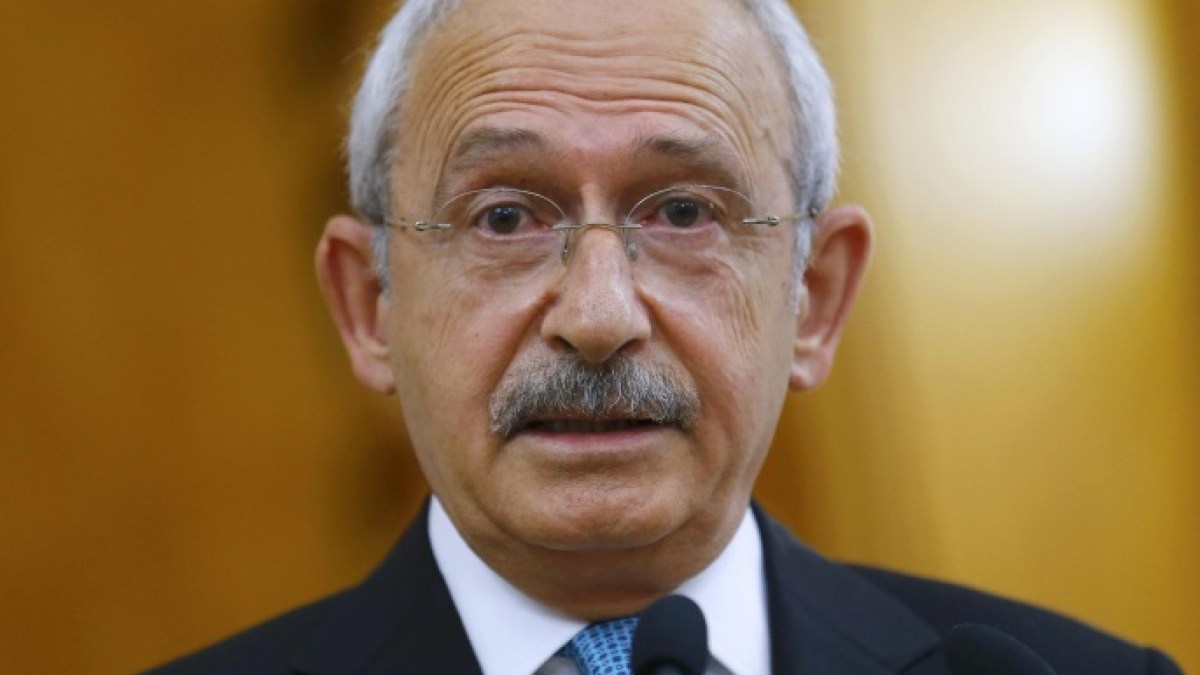Kemal Kilicdar is a Turkish political leader, head of the Republican People's Party, the largest opposition party
, and despite that, he surprised everyone with his quick and firm stance in rejecting the failed coup attempt that took place on July 15, 2016.
Birth and upbringing
Kemal Kılıçdaroğlu was born on December 17, 1948 in the town of Nadhimiya, Tungli Province (eastern Anatolia) in Turkey, to a family of the Alawite sect whose origins go back to Khorasan in Iran.
His father's name was "Qamar Khan", but in 1950 he changed his nickname from "Khan" to Kilicdaroglu.
He is the fourth of seven children in the family, and the father of two daughters.
Study and formation
Klejdar completed his elementary and intermediate studies in the schools of his state, and joined the Elazig Commercial Secondary School, which he finished with honors in 1967. Then he moved to university studies in the capital and entered the Ankara Academy for Economic and Commercial Studies, from which he graduated in 1971.
Jobs and responsibilities
Kılıçdar worked for the Turkish Social Security Institution starting in 1992, and took charge of its general management between 1997 and 1999.
On August 31, 2012, he was elected Vice-President of the Socialist International.
political experience
Klejdar began his political activity in 2002 by joining the secular Republican People's Party, which considers itself the legitimate heir to the policy and thought of the founder of the republic, Mustafa Kemal Atatürk.
He ran in the Turkish Parliament elections in November 2002 and then in August 2007, and won membership in Parliament in the second district in Istanbul.
He ran for mayor of the Greater Istanbul Municipality in the local elections held in March 2009, but he won only 37% of the vote, losing the position to the candidate of the Justice and Development Party, Kadir Topbaş.
In 2010, the General Assembly of the Republican People's Party elected him president after the resignation of his predecessor, Deniz Baykal. He led the party in the battle for the parliamentary elections that took place in June 2011, and he came second in it with 26% of the vote.
The party, under its leadership, participated - with the opposition National Movement Party - in Ekmeleddin Ihsanoglu's candidacy to compete in the presidential elections that were held in August 2014 for the first time by direct vote, but lost to the strong candidate of the Justice and Development Party, Recep Tayyip Erdogan.
Klejdar was re-elected in 2014 as head of the People's Party, leading it to the parliamentary elections in June 2015 and its re-election in the following November, and the party won second place in the two rounds, and its president was also re-elected to parliament.
Klejdar leads the opposition as the head of its largest party, and is known internally for his strongly anti-Justice and Development Party and its successive governments, and strongly opposes the party's foreign policies, especially on the issue of openness to the Middle East and the Arab world.
On the external level, he is described as a friend of the Syrian regime headed by Bashar al-Assad, which observers say is due to his Alawite Shiite sectarian background and the fact that his party is generally affiliated with this sect, and he also has a strong relationship with the regimes in Iraq and Iran.
When sectors of the Turkish army staged a coup attempt to overthrow the regime and seize power on July 15, 2016, Kılıçdar stood against the coup and criticized its participants, despite the fact that he leads the largest opposition party to the ruling regime.
On the morning after the attempt, he was present among his colleagues in parliament to announce their support for democratic legitimacy.
From the famous Taksim Square in central Istanbul, Klejdar read out a statement by his party in the form of a document condemning the coups, in front of hundreds of thousands of all political currents who participated in the "democracy march" that brought together the government and the opposition on July 24, 2016.
Despite his opposition to the government and his repeated criticism of the policies of the country's president, Erdogan, Kilicdar answered the invitation of the latter to meet him at the Republican Palace on July 25, 2016, a meeting that was considered a central shift in Turkish national relations.

